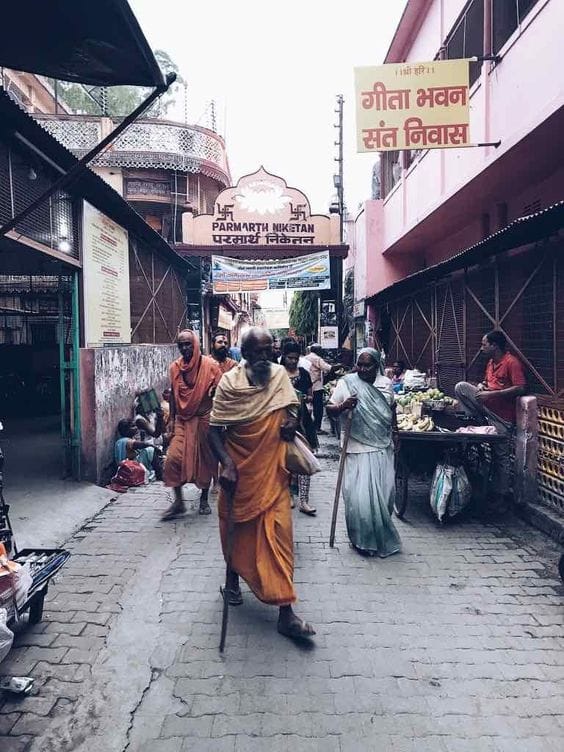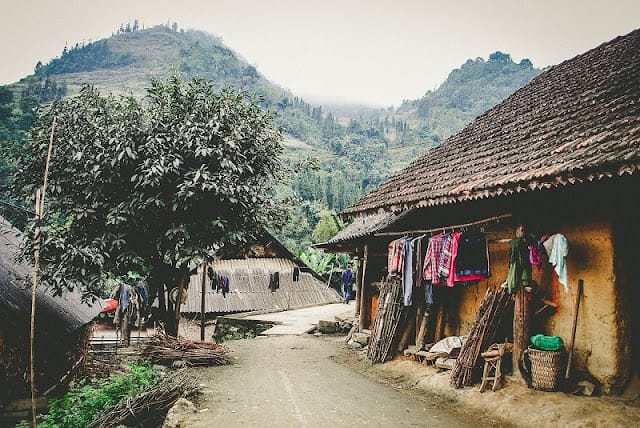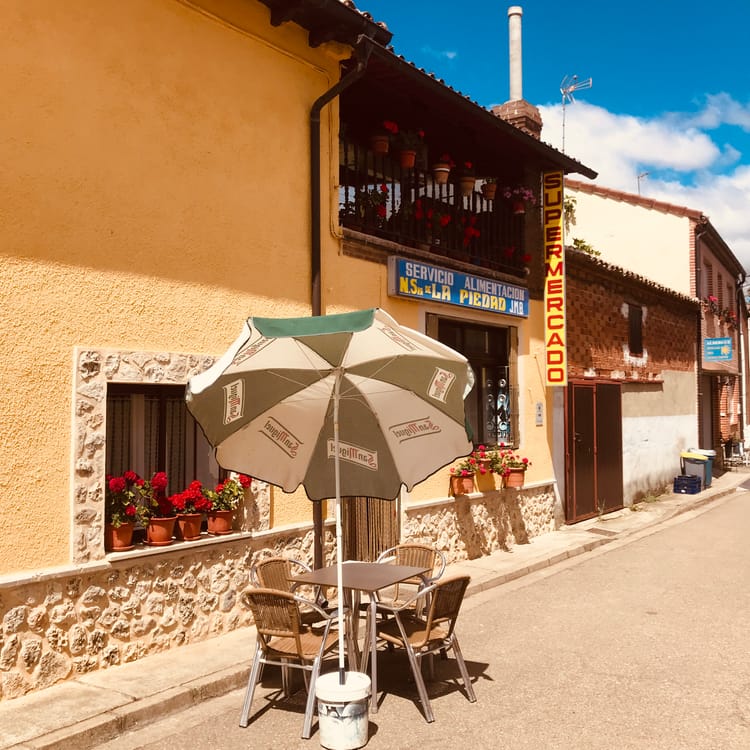The Conman of Rishikesh

Rishikesh must have been really something once.
You read about the old days in certain parts of the world, and you're helplessly ensnared by the gnawing truth that all of life is in flux, and cities certainly can't evade the oscillating rhythms of change: the one truly immutable law.
No matter how deep their foundations, how powerful their energetic memories, these meridians wax and wane.
Bagdad in the 9th century, Kabul, Tehran, and Beruit in the 60s. Paris and Berlin in the 20s. All repositories. All deep, enduring cultural Meccas, swept away by the socio-political tides of the generations.
So, Rishikesh must have been something extraordinary in the days of the Rishis, and probably, it was special right up until the pre-internet years.
But, by the time I rolled in with Alessia after a night bus from Delhi one freezing morning, any trace of authenticity had long fled those ancient Vedic hills.
Prostituted by decades of conniving, safron-clad opportunists, Rishikesh paralleled Venice Beach; whatever golden age those streets had nurtured was now a cesspool of denigrates, corrupted by the heavily lined pockets of desperate seekers converging under the linen banner of esoterica.
Certainly, curious, sincere explorers still meandered its poisoned streets.
Yet, between the nauseatingly smiley posters of "gurus" offering free lectures plastered on every building and the hobbling, hunchbacked little men grasping for your palms and insisting they divine your future, it more resembled a spiritual sales convention than an attempt at the "truth."
We'd set up shop at an ashram on the Ganges that Alessia had researched back in Milan, and I'd been content to follow her lead as we checked into our 6-dollar-a-night rooms and perused the weekly schedule.
As far as Ashrams went, ours was austere.
Concrete, colorless rooms with hard, single beds, outdoor toilets, and buckets of Himalayan river water to wash with. The kind of austerity still shockingly commonplace in the majority of the world that reminds privileged Westerners how ditheringly soft we've become.
From 10 pm to 5 am, the steel gates severed the connection to the outside world.
Sex, booze, and drugs were prohibited, so naturally, anyone wanting to indulge ensured they'd clandestinely slipped out after evening Satsung before curfew, joining a continuous flow of hypocritical deviants draped in marigolds through the forest en route to the "other" Rishikesh.
If a slither of authenticity residually existed in this city by those days, it was present only in the crowded, hash-filled streets of this "other" town.
Here, people went about their days loaded on a cocktail of psychedelics, tarot cards, and polyamorous flings where submitting to primal desires was masked by the proclamation that you were dissolving into universal love.
Back in Rishikesh proper, the midday streets were awash with beggars, bead salesmen, and sprookers enticing you to step inside and see their "Master." It was how I'd imagined the Gypsy camps must have felt when the circus came to a Victorian English town, a seductive mix of seed and shadow.
The absurdity of it all was irresistible, and I spent my first few afternoons on a Guru crawl, voyeuristically hopping from one makeshift lecture hall to the next, silently wedged between tear-filled worshipers displaying the entire gamut of pathological mummy and daddy issues.
However, if Safron-clad, California-raised Masters holding sunset sermons on the mount by the Ganges was more your thing, you could join hundreds of other cross-legged, doe-eyed, usually exquisite beauties prostrating at the feet of their deified teacher.
There was some curious connection between the unnerving beauty and vitality of the women attracted to these scenes, something that was confirmed in later experiences in Auroville.
Here, the Swami would begin with Shivic offerings and proceed to give a lecture followed by an extensive Q&A, where seekers of all flavors would unashamedly divulge their burdens to the mass of strangers in the hope that Sarah, the philosophy dropout from UCLA, could dissolve them with her regurgitated, semi-masticated treatise on the nature of living.
It was startlingly clear, to me at least, that Swami Sarah's nightly talks were not completely devoid of benefit to the people who knelt at her bare feet. Flocks of people ebbed and flowed with their problems significantly lightened, albeit momentarily.
Yet, it was one of the more profoundly disturbing aspects of ashram life, and Rishikesh in general: the willingness of people to turn themselves over to another human being on whom, in their desperation, they'd projected all of their hopes, fears, and longing for personal salvation and redemption.
One morning, drinking chai, I fell into conversation with a Sudanese woman on her way to cross the river and listen to Mooji, a dreadlocked Anglo/Jamaican incense dealer turned "Mystic" from Camden, whom I'd seen on YouTube back in Australia.
Given the circus I'd witnessed in the preceding weeks, the prospect of seeing him in the flesh was irresistible.
We meandered through the chaos, reaching a large lecture hall surrounded by an army of twenty-something-year-olds with uncomfortably stretched smiles and draped in white and printed lanyards. Mooji was making some dough.
The Guru's fixers spoke only in whispers.
Their communication was resigned to large, printed signs, which they waved in a friendly yet strained manner, guiding you to your area and reminding you to be silent.
The absurdity culminated in a woman with a printed "silent" sign standing outside of the male bathroom, insinuating that even pissing too loudly would disturb the Guru, who presumably also needed to defecate from time to time.
The hall quickly filled with over 1,000 people. Beautiful incense wafted through the open windows everywhere, and the gentle, excited murmur of the crowd was electrifying.
After half an hour of listening to Mooji's uninterrupted praise all around me, I felt queasy.
I began preparing my exit when the crowd unanimously ran towards the barred windows.
A short, fat man with a long, greying beard slowly glided by the windows, trailed by a sea of undoubtedly handpicked concubines.
As he floated by, the crowd lurched at him through the windows, desperate to touch the Guru. The mass of young women throwing flowers behind him and those within the hall holding feverish, outstretched arms between the bars showed me everything I needed to know about the Guru circuit.
In a second, any vestige of belief in the sincerity of these "teachers" vanished.
I listened to a painful hour of questions at various levels of delusion.
There was the Brazilian woman who, between hysterical bouts of crying, wanted advice about her impending divorce, the German man who sought answers about the nature of his journey in the next incarnation, and the young Parisian narcissist who felt compelled to share her spiritual journey towards self-acclaimed enlightenment with the crowd for 15 minutes.
Woven into the fabric of each question was the alarming presupposition that this man from London could have possibly answered such profound and personal queries. This man who'd probably still be selling Nag Champa door to door if it hadn't been for his insatiable desire for power.
As soon as the questions had finished and the "Mooji my father" chants started, I left.
I laughed as I pushed past the fixers, who tried through contrived grins to hide their frustration that anyone would want to not relish every last drop of the Master's presence.
I found a dilapidated underground whiskey hall and ordered a few Kingfishers.
Whatever these miscreants were up to in the dim, smoke-filled basement as they argued under the spell of whiskey and wine felt closer to the source than anything I'd witnessed in the previous two hours.
It was my last afternoon in Rishikesh, and as I wandered back to the Ashram, I reflected on the hierarchies of hustle that pervaded the spiritual marketplace.
Politicians are universally known as sycophants, billionaires are generally recognized as power mongers, and modern, baseless celebrity is a culturally tacit, sustained institution of narcissism.
Yet, few things are more insidious than the hypocrisy rooted in spiritual corruption and exploitation. Think of the Catholic Church's sale of Indulgences throughout the Middle Ages or the poison of the caste system created and sustained by the Brahmin elites.
The world is stained by these conmen who proclaim messianic enlightenment and prey on the vulnerable as they rake in millions and enjoy their Mansonesuqe orgies in secluded 5-star Costa Rican beach resorts.
Mooji was, unfortunately, another node in a matrix of manipulative, moderately charismatic charlatans made rich off fear.
Whatever resonance Rishikesh once mothered, it was the Vegas of the spiritual conmen by the time I walked her streets.





